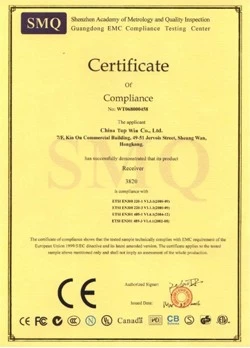Why didn ' t there be water on Mars ? The scientist said it was finally found .
chinatopwin
chinatopwin
2017-12-25 09:50:32
Reference News Network December 22nd reported that British media said, University of Oxford
researchers believe that: when the surface of Mars is absorbed into the shell of Mars, Mars is
not suitable for living.
According to the report of the independent website in December 20th, the latest research led by
the Department of Earth Sciences, University of Oxford, provides insight into the subtle changes
in the planet's environment. The planetary environment determines whether the planet is likely to
have life.
Until 3 billion years ago, the surface of Mars was covered with water, almost the same as the
Until 3 billion years ago, the surface of Mars was covered with water, almost the same as the
earth. But now, Mars is barren and arid, so the Martians do not exist except in science fiction.
Researchers have long been thinking about what has happened to the water on Mars. Previous
Researchers have long been thinking about what has happened to the water on Mars. Previous
studies have shown that a portion of the water on Mars was absorbed into space after the Martian
magnetic field collapsed.
However, a recent research carried out by University of Oxford researchers shows that water is
However, a recent research carried out by University of Oxford researchers shows that water is
still there, but it has been locked on the surface of Mars because of its chemical reaction with the
crust.
Dr Wade, the leader of the study, said: "on Mars, water reacts with the lava that has just erupted to
Dr Wade, the leader of the study, said: "on Mars, water reacts with the lava that has just erupted to
form a basalt shell, producing a sponge effect. "The study was published in the journal Nature.
"The reaction between water and rock changes rock mineralogy, causing the surface of the planet
to be dry, so it is not suitable for life," he said. "
The tiny difference between the earth and the other planets of the solar system, such as Mars,
The tiny difference between the earth and the other planets of the solar system, such as Mars,
has created conditions for life on our planet, not other planets.
Dr. Wade said: "the biggest difference is that the surface rock of Mars contains more iron,
because Mars is formed under more oxidizing conditions. "
Researchers found that the rocks on Mars lock up 25% more water than the earth's rock, and
then the rocks transfer the water to the planet.
For a long time, it has been thought that Mars may have life, paying special attention to the water
content of Mars.
Previous studies have found that the structure of Mars suggests that the surface of its surface
Previous studies have found that the structure of Mars suggests that the surface of its surface
might have had microbes at one time, perhaps in the once hot springs and intermittent fountain.
Professor Jim McElwain, a researcher at the Durham University, pointed out that although Mars
Professor Jim McElwain, a researcher at the Durham University, pointed out that although Mars
does not have water like the earth, even today it has not completely dried up. Meckel Wayne
studied the possible existence of water in Mars, but did not participate in the study.
"We know that Mars had had a lot of water before, billions of years ago," he said. But we also
"We know that Mars had had a lot of water before, billions of years ago," he said. But we also
know that there's a lot of water now, in the ice. "
Professor McElwain said that although Mars rocks may absorb moisture, even if there is no such
phenomenon, Mars probably will not have such an ocean like the earth, because its atmospheric
conditions are different.
"Water is probably the most end to ice, or into space," he said. "
But Dr. Wade said it was important to explore the role of rock chemical components on other
"Water is probably the most end to ice, or into space," he said. "
But Dr. Wade said it was important to explore the role of rock chemical components on other
planets in locking water and changing the environment.
Small chemical changes in the planet may have a significant impact on their ability to maintain
life.
"These effects and their implications for other planets have not been explored," Dr. Wade said. "
"These effects and their implications for other planets have not been explored," Dr. Wade said. "











